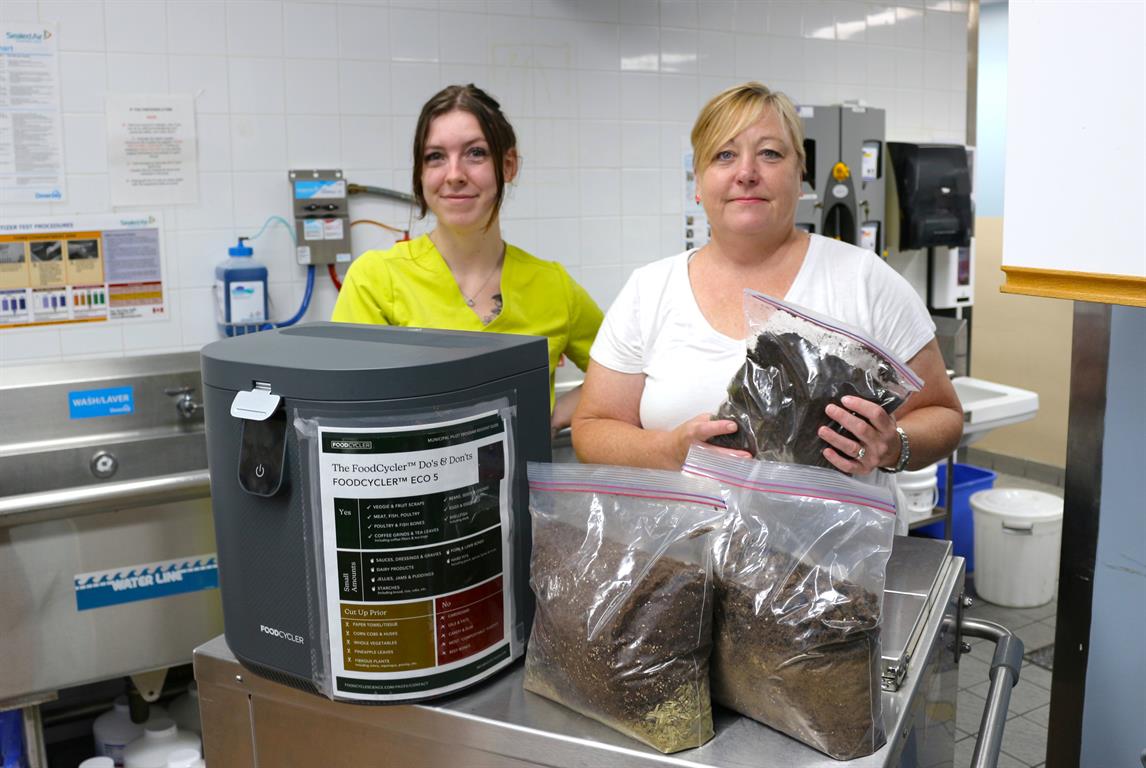|
The Deep River and District Hospital (DRDH) is excited to share that we are fighting food waste by participating in the Town of Deep River’s FoodCycler Food Waste Diversion Pilot Program.
As part of this environmental stewardship initiative, three FoodCycler units arrived at DRDH earlier this summer and are already being used to turn our spoil into soil!
FoodCyclers are electric composting units that take food waste and turn it into a nutrient rich soil amendment that can be used as a fertilizer – referred to as ‘Foodilizer’. FoodCyclers claim they can reduce food waste volume by up to 90%, and only consume 0.8-1.5 kHh per cycle, which is equivalent to having a desktop computer running for the same amount of time as the cycle.
Food waste is being collected from across the organization to be turned into compost. The compost, or ‘Foodilizer’, from the FoodCycler units will be used onsite at DRDH to support sustainability by bringing our food waste out of the garbage and into the garden.
By participating in this program, DRDH is not only reducing our impact on the environment, but we are also helping to test the viability of onsite food waste processing technology as a method of waste diversion. Data is being collected by our Dietary team over a 12-week period, and it will be shared back with the Town of Deep River once the pilot program is completed.
We look forward to sharing more information about the impacts of this environmental stewardship initiative in the coming months. 
Pictured here with one of DRDH’s new FoodCycler units, as well as bags of our very own ‘Foodilizer’ are Dietary team members Jess Mackinnon – Food Service Worker (left) and Ann Kelly - Food Service Supervisor (right).
|